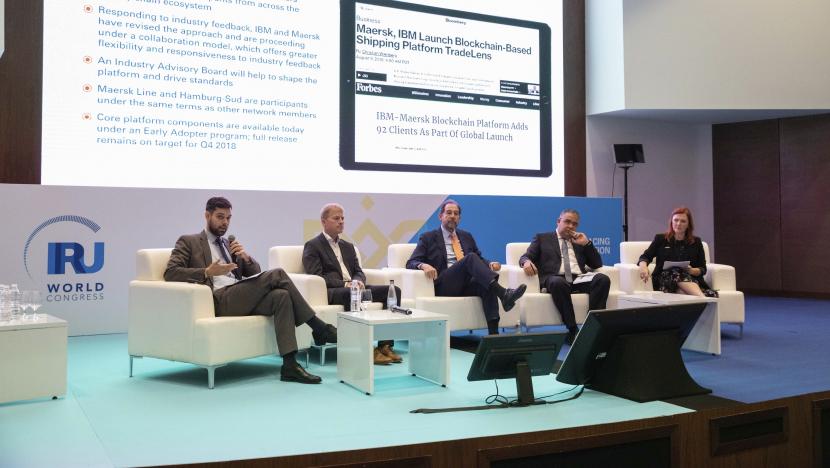Roundtable session wrap-up
Part of the “Embracing Innovation” hub at the World Congress, this roundtable assessed the impact of big data on the road transport industry.
Road transport operators have been handling large amounts of data for years. They are starting to understand how to process and analyse a vast array of information in new ways. However, despite plenty of hype around big data capabilities, many still wonder about the reality. What does big data mean for road transport? What are the range of applications/solutions? How can transport operators reap the benefits of data? What is needed to make big data a reality?
“The hype is over, now the question is what we make of all this data”
The session was moderated by journalist, Jennifer Baker, with a panel comprising Nicolas Buhmann from Maersk, Hasse Römer from Ericsson, Juan Carlos Villa from Texas A&M Transportation Institute and Mondher Mimouni, Chief Trade and Market Intelligence section at the International Trade Center.
“The hype is over, now the question is what we make of all this data,” declared Mr Römer at the start of the debate. The panel offered two conclusions.
Strengthen data collection and analysis, and improve data sharing across the industry.
The road transport industry is increasingly based on digital tools, which means that data exists across supply chains. The failure, according to the panel, is the lack of industry capacity to analyse it and exploit it.
As one participant remarked “The sector needs to be better prepared for the significant rise in the quantity of data from multiple sources, while establishing how to aggregate and assess it.” The challenge is how to apply the lessons learned from big data to improving operational systems and services.

